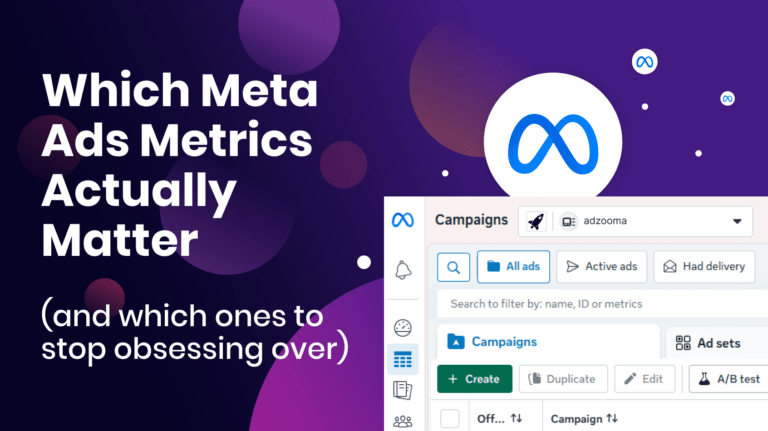A quick Google search brings up about 37,000,000 results for “SEO keyword tools”. Most of them are blog posts about which SEO tools to use or landing pages for the tools themselves.
But if you’re trying to find the best SEO tool for your business, this isn’t enough information to go off. Worse still, it’ll be biased and not offer your business the value you actually need.
While I will be doing the same in this article, I will also be covering what a keyword tool actually does, why you should be using one in 2024, and things to consider before taking the plunge.
What is an SEO keyword tool?
An SEO keyword tool primarily finds keywords and phrases you can use on your website. The best content on the web is optimised based on these phrases so keyword tools are essential for organic search campaigns.
But they don’t just find keywords. SEO tools analyse how well they perform, giving you key information to influence your strategy.
Here are three key metrics to think about:
- Monthly search volume (an average of how many times that keyword or phrase is searched every month)
- Trend (usually a graph of how often people are searching during a period of time)
- Keyword difficulty (how difficult it is to rank for that keyword – the lower, the better)
The perfect keyword has a high search volume, a high trend, and a low difficulty rating. But we don’t live in a perfect world. That’s why you need to find a balance.
Why do you need an SEO keyword tool?
Finding that perfect balance is why you need an SEO keyword tool. You can’t afford to make assumptions with your content. SERP features like rich snippets are the equivalent of a page spread advert in a printed publication except they’re free. You don’t get one of those without optimised content and you don’t get optimised content without SEO keyword tools.
Beat the competition at their own game!
More than likely, you’ll have competitors that are ahead of you. They’re there for a reason – they are doing certain things better than you are and keywords play a major role in that.
But they won’t have optimised for every keyword in your industry. And that’s where SEO tools work best. You can check what keywords they’re ranking well for and ones that don’t.
Tapping into that low-hanging fruit could be your ticket to higher conversions.
Master the power of long-tail keywords
Following on from that low-hanging fruit, you’ve got to find it. Ranking #1 for your brand name isn’t enough if it doesn’t help you convert.
A keyword tool will help narrow down the terms that matter to you and offer some surprisingly high ROI, even if the search volume is less than 100.
With around 70% of organic traffic coming from long-tail keywords, you’re missing out on potentially lucrative opportunities without an SEO keyword tool in your proverbial shed.
Track the performance of your own keywords
It’s all well and good looking for opportunities but what are you currently ranking for? What could you improve? SEO is a process and you need to know your own performance.
Paid keyword tools have ranking functionality to analyse where you are in the SERPs. You can also compare your profile with your competitors’ profile to find content gaps.
12 keyword tools to propel your content up the SERPs
1. SEMrush’s Keyword Magic Tool (Freemium)
I used SEMrush to write this very article. The Keyword Magic Tool has been a revelation since I first discovered it.
The tool can generate over 2 million keyword ideas for SEO and PPC campaigns and group them by topic. If you find a handful of interesting keywords, you can save them in the Keyword Analyzer and estimate the number of clicks and how likely you’ll rank for them in the top 10 of the SERPs.
There’s also an export function so you can generate a CSV or XLS file for clients or colleagues.
2. Answer the Public (Freemium)
A digital PR favourite, Answer the Public finds the questions and queries that searchers are asking and gives a report based on Google SERPs.
Answer The Public used to be a free service but there is now a daily limit on free searches. The Pro version costs $99/month and gives you features including:
- Unlimited searches
- Compare data + see new suggestions
- Language + location based search results
- Saved reports
3. Checkbot (Freemium)
Checkbot is a great platform that finds critical SEO, speed and security problems before your website visitors do. They test hundreds of pages at once for broken links, duplicate titles, invalid HTML and loads of other checks – if there’s something wrong with your website, they will find it.
You can use the basic version for free which is ideal for quickly checking small website, or for just £15 a month, you can access in-depth audits and reporting with their professional version.
And they’re trusted by some pretty well-known brands too, including Amazon, Sketchers and Merrick Bank.
4. Advanced Web Ranking (Paid)
Advanced Web Ranking (AWR) give you fresh daily, weekly and on demand rankings packed nicely into white label reports that are accessible from any device. They provide you with custom SEO reports which are fully customizable, straightforward and integrated with third-party reporting tools.
Their reliable rank tracking solution allows you to track your clients’ performance in SERPs with pinpoint accuracy regardless of their location. You’ll receive relevant rankings tailored to your niche, segment data into insightful bits and build thorough reports that your clients will love.
Their plans start from as little as $49 a month and you can start today with a 30 day free trial.
5. SEO PowerSuite (Freemium)
SEO PowerSuite holds enough tools for an SEO campaign of any caliber. It’s got everything from SEO analysis tool to keyword research tools to backlinks checkers to content editors to PPC ads optimization and much more. With its intuitive UI and a wealth of pro-level features, it’s a perfect SEO tool for newbies and experts alike.
The toolkit is made up of 4 tools that cover every aspect of SEO — keywords, rankings, backlinks, on-page and content data, mobile SEO, social media, analytics, and reports.
You can access the basic version of their platform for free or upgrade to their professional or enterprise plans which start at £249 a year.
6. Dashword (Paid)
Dashword helps writers produce content that ranks with this keyword tool.
The software uses self-built ML models to determine relevance based on data from the top 30 Google results of any given keyword. It then assigns a score to each topic and you can evaluate competitors’ content as well. A worthy addition to any SEO tool kit.
When you sign up, your first report is free. Their pricing then starts from $29 a month for the hobby plan, and $99 for the professional plan.
7. Ahrefs Keywords Explorer (Paid)
The Ahrefs equivalent to the Keyword Magic Tool, the Keywords Explorer covers the essentials and throws in some unique features of their own.
According to its website, Keywords Explorer is the most complete keyword research tool on the market, using the largest third-party search query database in the world. That means it comes with thousands of different keyword suggestions from a choice of over 7 billion from 171 countries!
Keywords Explorer trawls through 10 search engines including Google, YouTube, and Bing and uses clickstream data to ensure the data is accurate, refreshed every month.
As well as a keyword difficulty score, you also get an estimate of how many clicks your keyword gets and you can cluster keywords under “parent topics” to maximise your chances of ranking.
8. Google Trends (Free)
Want to see how much of a buzz a topic is getting online? Google Trends is the answer. The website analyses the popularity of Google search queries depending on location and languages.
You can also compare different queries over time with graphs to analyse trends.
9. Keyword Tool (Free)
Speaking of which, Keyword Tool is the next tool on the list. The self-proclaimed “best alternative to Google Keyword Planner” offers over 750 long-tail keyword suggestions per query with its free version and 100% of the time, it works 99.99% of the time.
- Free version of Keyword Tool generates up to 750+ long-tail keyword suggestions for every search term
- Unlike Keyword Planner or other tools, Keyword Tool is extremely reliable as it works 99.99% of the time
- You can use Keyword Tool absolutely for free, even without creating an account
10. KWFinder (Free)
Long-tail is still the way to go for untapped niche searches. But the longer the tail, the lower the volume. KWFinder finds that careful balance between long-tail, volume, and low difficulty.
KWFinder does what most other SEO keyword tools doesn’t – it gives an accurate search volume figure (eg. most tools round volumes to the nearest 10; KWFinder does it to the nearest 1).
You can also visualise a keyword’s difficulty with a handy meter so you know whether it’s worth trying to rank for.
11. Adzooma’s SEO Performance Report (Free)
Another fantastic feature is by using Adzooma’s SEO Performance Report. The report will analyse your website and identify immediate actions you can take to improve. You’ll get an overall score out of 100, the closer to 100 you are, the better optimised your website is.
You’ll then get a more detailed breakdown of your performance into 4 key areas including keyword performance. This section will show where your website ranks for selected keywords, as well as other phrases that you might not be aware of. It will tell you information such as:
- How many keywords you rank #1 for
- How many of your keywords rank in the Top 3 and Top 10
- The total number of keywords your website ranks for
- An estimate of your monthly traffic
- The top 25 keywords that you rank for
The report is available to all Adzooma users, try the basic version for free to get a taste of what this report can offer. Not an Adzooma user? Sign up for free, here.
12. Soovle (Free)
Last but not least is Soovle. The interface may be archaic by modern standards but as a keyword tool, it does the trick. It gives search suggestions and completions from search engines like Google, Wikipedia, Bing, Amazon, and even places like eBay and Yahoo!. Just type your word in and watch the screen populate with suggestions.
4 elements to review when choosing a keyword tool
Now you know what an SEO keyword tool does and why you need one, you have to figure out what you need from one.
These tools are far from niche so most of them will offer the same kinds of features. Companies like to offer unique features nobody else does and while they can be useful, they might not be right for your business.
So here are some key elements to think about when choosing an SEO keyword tool.
1. Should you choose a free tool or a paid tool?
This factor will cull a lot of choices, depending on your budget. The best SEO keyword tools will charge a monthly fee because they offer comprehensive analysis and vast amounts of data (more on that later).
But not everyone has a big enough budget to pay for these kinds of tools. Free tools are great if you don’t have the money for tools like SEMrush and Ahrefs but they only offer specific features.
It boils down to what you need and what you can afford.
There’s an in-between category for internet services known as freemium (free + premium). It means you can get certain features for free but they’re limited unless you pay a subscription fee.
2. User interface and user experience
UX is very important when using a tool or service. As many of the SEO keyword tools in our list are browser-based, that means the websites need to be fast and clear in what they provide.
UK Web Host Review created an infographic about UX design and found:
- 59% preferred a “beautifully designed website”
- 86% of visitors want information about products and services
- You have on average 10 seconds to impress visitors before they leave
A good keyword tool should be well-presented, explain what the tool does, and you should be able to navigate quickly and intuitively.
3. Does the keyword tool have the essential features you need?
Before you can think of the bells and whistles, you need the product or service to be fundamentally sound. That means the basic features need to be there and optimised for use.
The best SEO keyword tools need to provide some or all of the following:
- Keyword research
- Monthly search volume
- Trends
- Keyword difficulty
- Any available SERP features for a given keyword (Featured snippets, sitelinks, people also ask boxes)
- Keyword variations
Some tools focus on specific elements like AdWord & SEO Keyword Permutation Generator but others are all-in-one software suites like SEMrush and Ahrefs that provide multiple keyword tools.
Start small and add more features as and when you need them to save money and time.
4. How much keyword data does the tool have?
Data fuels keyword tools. So you need as much data as possible to accurately analyse your competition keywords and your niche.
Most tools fall under two categories for data: user-generated data and search engine data. For user-generated data, you input your own data and the tool analyses it. An example of this is the AdWord & SEO Keyword Permutation Generator which comes up with different keyword variations to then funnel back into your organic or paid content.
Google Trends, however, taps into Google’s gargantuan database of keywords and give up-to-date graphs and search trends. This saves you time and gives you insights into user search behaviour.
Final SEO keyword tool takeaways
Now’s the time to make a decision. Should you go with a free tool or a paid one? There are plenty of advantages to both and you can find some top quality keywords with free SEO keyword tools.
But they’re not as robust or in-depth as paid tools. Most don’t give you the analysis you need to create engaging topic clusters and entities.
Do you really have the time to trawl through Google Autocomplete when SEMrush or Ahrefs can do bulk analyses of a list of keywords? And do you have the budget for those?
These are things to consider when seeking the best SEO keyword tool for your business.



